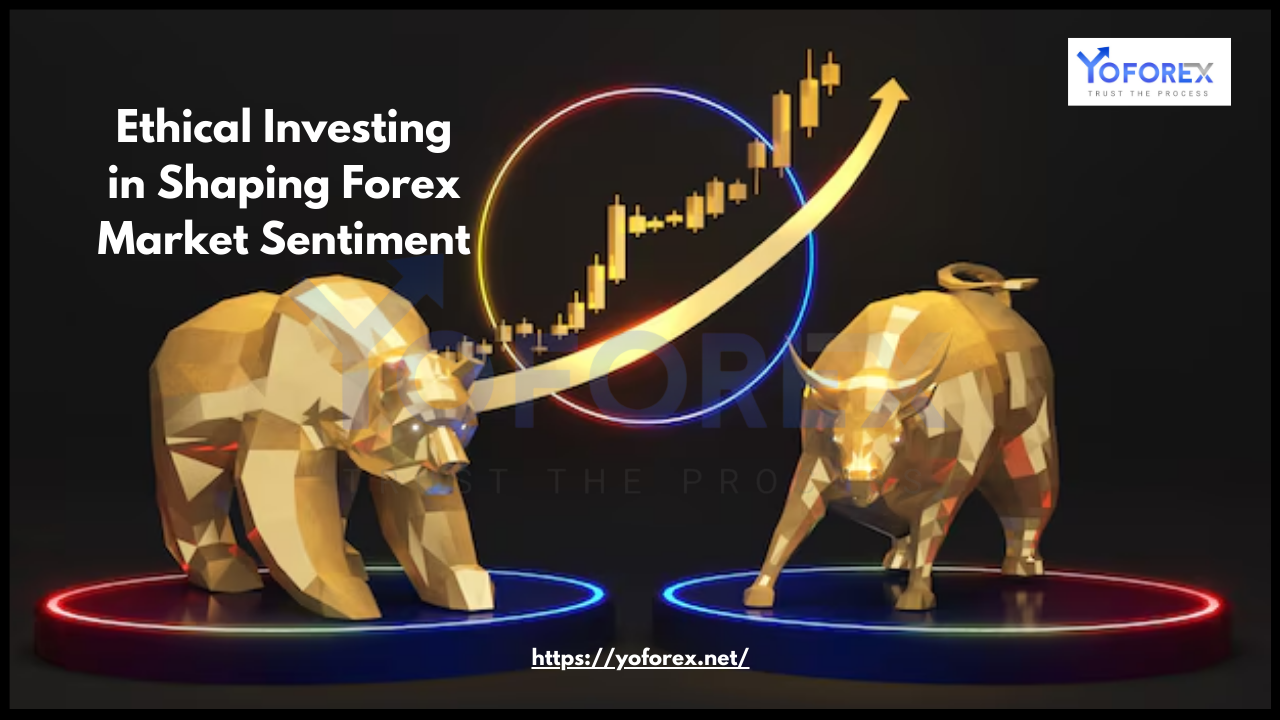In recent years, ethical investing has gained significant traction across financial markets, influencing investor behavior and market sentiment. While traditionally associated with stock markets, ethical investing is now shaping forex market sentiment as well. Investors are increasingly considering environmental, social, and governance (ESG) factors when making currency-related decisions, leading to a shift in forex market dynamics. This blog post explores how ethical investing impacts forex market sentiment and the broader implications for traders and policymakers.
Understanding Ethical Investing in Forex Markets
Ethical investing involves making financial decisions based on moral, social, and governance principles. In the forex market, this means traders and institutional investors factor in a country’s ESG performance when analyzing its currency’s value. Currencies of nations that prioritize sustainability, human rights, and good governance tend to attract ethical investors, while those with poor ESG records may face depreciation due to capital outflows.
Key factors influencing ethical investing in forex markets include:
- Environmental Policies: A country’s commitment to sustainability, carbon neutrality, and green energy policies can impact investor sentiment and currency strength.
- Social Responsibility: Human rights, labor laws, and social stability influence foreign investment and, consequently, forex demand.
- Governance Practices: Transparency, corruption levels, and regulatory frameworks affect trust in a nation’s currency.
How Ethical Investing Influences Forex Market Sentiment
1. Capital Flow Shifts
Institutional investors and sovereign wealth funds are increasingly integrating ESG considerations into their forex trading strategies. Countries that implement strong ethical policies attract more foreign direct investment (FDI) and portfolio investments, leading to currency appreciation. Conversely, nations with poor ESG ratings experience capital outflows, weakening their currency.
2. Risk Perception and Volatility
Ethical considerations shape market sentiment by influencing perceived risks. Countries with unstable governance, environmental risks, or human rights violations are often deemed high-risk, causing currency volatility. Traders anticipate these risks and adjust their positions accordingly, leading to market fluctuations.
3. Central Bank Policies and Interest Rates
Central banks are increasingly acknowledging the role of ESG in monetary policy. Countries integrating ethical investing into economic policies may see favorable interest rate adjustments that enhance currency strength. For instance, a country committed to green energy might receive international funding, strengthening its economy and currency.

4. Consumer and Corporate Demand for Ethical Investments
As consumers and corporations demand ethical investment options, financial institutions launch forex-related ESG investment products. Ethical ETFs and sustainable forex trading instruments influence trading volumes and liquidity, reinforcing ESG-conscious forex trends.
Case Studies: Ethical Investing and Forex Market Movements
Case Study 1: European Union’s Green Deal and the Euro
The EU’s commitment to environmental sustainability through the Green Deal has positioned the Euro as a favored currency for ethical investors. The region’s focus on carbon neutrality and renewable energy has attracted sustainable investments, contributing to the Euro’s stability despite economic uncertainties.
Case Study 2: Deforestation in Brazil and the Brazilian Real
Brazil’s deforestation policies and environmental concerns have led to negative sentiment among ethical investors. As foreign investors divest from Brazilian assets due to ESG risks, the Brazilian Real has experienced depreciation, illustrating how environmental policies affect forex sentiment.
Case Study 3: Governance Issues in Emerging Markets
Emerging market currencies often suffer from governance-related risks. Countries with corruption scandals or weak regulatory frameworks see reduced investor confidence, leading to capital flight and currency devaluation.
Challenges and Limitations
Despite its growing influence, ethical investing in forex markets faces challenges:
- Lack of Standardized ESG Metrics: Unlike equities, forex markets lack uniform ESG reporting standards, making ethical investment decisions complex.
- Short-Term Market Pressures: Ethical considerations often compete with short-term economic and political factors, causing mixed forex trends.
- Geopolitical Conflicts: Global politics heavily influence currency movements, sometimes overshadowing ESG concerns.
Future of Ethical Investing in Forex Markets
Ethical investing is set to play an increasingly prominent role in forex markets. As regulatory bodies push for sustainable financial systems, ESG factors will become integral to currency valuation. Traders, policymakers, and financial institutions must adapt to these trends, integrating ethical considerations into their forex strategies.
Conclusion
Ethical investing is shaping forex market sentiment by influencing capital flows, risk perceptions, and economic policies. Countries that prioritize ESG principles benefit from stronger investor confidence and currency stability, while those neglecting these factors may face economic challenges. As ethical investing continues to gain momentum, its impact on forex markets will only grow, making ESG considerations essential for traders and investors alike.

